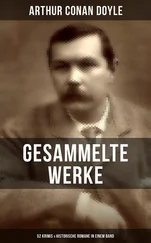ULYSSES.
No; you see he is his argument that has his argument—
Achilles.
NESTOR.
All the better; their fraction is more our wish than their faction. But it was a strong composure a fool could disunite!
ULYSSES.
The amity that wisdom knits not, folly may easily untie.
[Re-enter PATROCLUS.]
Here comes Patroclus.
NESTOR.
No Achilles with him.
ULYSSES.
The elephant hath joints, but none for courtesy; his legs are legs for necessity, not for flexure.
PATROCLUS.
Achilles bids me say he is much sorry
If any thing more than your sport and pleasure
Did move your greatness and this noble state
To call upon him; he hopes it is no other
But for your health and your digestion sake,
An after-dinner’s breath.
AGAMEMNON.
Hear you, Patroclus.
We are too well acquainted with these answers;
But his evasion, wing’d thus swift with scorn,
Cannot outfly our apprehensions.
Much attribute he hath, and much the reason
Why we ascribe it to him. Yet all his virtues,
Not virtuously on his own part beheld,
Do in our eyes begin to lose their gloss;
Yea, like fair fruit in an unwholesome dish,
Are like to rot untasted. Go and tell him
We come to speak with him; and you shall not sin
If you do say we think him over-proud
And under-honest, in self-assumption greater
Than in the note of judgment; and worthier than himself
Here tend the savage strangeness he puts on,
Disguise the holy strength of their command,
And underwrite in an observing kind
His humorous predominance; yea, watch
His pettish lunes, his ebbs, his flows, as if
The passage and whole carriage of this action
Rode on his tide. Go tell him this, and ad
That if he overhold his price so much
We’ll none of him, but let him, like an engine
Not portable, lie under this report:
Bring action hither; this cannot go to war.
A stirring dwarf we do allowance give
Before a sleeping giant. Tell him so.
PATROCLUS.
I shall, and bring his answer presently.
[Exit.]
AGAMEMNON.
In second voice we’ll not be satisfied;
We come to speak with him. Ulysses, enter you.
[Exit ULYSSES.]
AJAX.
What is he more than another?
AGAMEMNON.
No more than what he thinks he is.
AJAX.
Is he so much? Do you not think he thinks himself a better man than I am?
AGAMEMNON.
No question.
AJAX.
Will you subscribe his thought and say he is?
AGAMEMNON.
No, noble Ajax; you are as strong, as valiant, as wise, no less noble, much more gentle, and altogether more tractable.
AJAX.
Why should a man be proud? How doth pride grow? I know not what pride is.
AGAMEMNON.
Your mind is the clearer, Ajax, and your virtues the fairer. He that is proud eats up himself. Pride is his own glass, his own trumpet, his own chronicle; and whatever praises itself but in the deed devours the deed in the praise.
[Re-enter ULYSSES.]
AJAX.
I do hate a proud man as I do hate the engend’ring of toads.
NESTOR.
[Aside]
And yet he loves himself: is’t not strange?
ULYSSES.
Achilles will not to the field tomorrow.
AGAMEMNON.
What’s his excuse?
ULYSSES.
He doth rely on none;
But carries on the stream of his dispose,
Without observance or respect of any,
In will peculiar and in self-admission.
AGAMEMNON.
Why will he not, upon our fair request,
Untent his person and share the air with us?
ULYSSES.
Things small as nothing, for request’s sake only,
He makes important; possess’d he is with greatness,
And speaks not to himself but with a pride
That quarrels at self-breath. Imagin’d worth
Holds in his blood such swol’n and hot discourse
That ‘twixt his mental and his active parts
Kingdom’d Achilles in commotion rages,
And batters down himself. What should I say?
He is so plaguy proud that the death tokens of it
Cry ‘No recovery.’
AGAMEMNON.
Let Ajax go to him.
Dear lord, go you and greet him in his tent.
‘Tis said he holds you well; and will be led
At your request a little from himself.
ULYSSES.
O Agamemnon, let it not be so!
We’ll consecrate the steps that Ajax makes
When they go from Achilles. Shall the proud lord
That bastes his arrogance with his own seam
And never suffers matter of the world
Enter his thoughts, save such as doth revolve
And ruminate himself—shall he be worshipp’d
Of that we hold an idol more than he?
No, this thrice-worthy and right valiant lord
Shall not so stale his palm, nobly acquir’d,
Nor, by my will, assubjugate his merit,
As amply titled as Achilles is,
By going to Achilles.
That were to enlard his fat-already pride,
And add more coals to Cancer when he burns
With entertaining great Hyperion.
This lord go to him! Jupiter forbid,
And say in thunder ‘Achilles go to him.’
NESTOR.
[Aside.] O, this is well! He rubs the vein of him.
DIOMEDES.
[Aside.] And how his silence drinks up this applause!
AJAX. If I go to him, with my armed fist I’ll pash him o’er the face.
AGAMEMNON.
O, no, you shall not go.
AJAX.
An ‘a be proud with me I’ll pheeze his pride.
Let me go to him.
ULYSSES.
Not for the worth that hangs upon our quarrel.
AJAX.
A paltry, insolent fellow!
NESTOR.
[Aside.] How he describes himself!
AJAX.
Can he not be sociable?
ULYSSES.
[Aside.] The raven chides blackness.
AJAX.
I’ll let his humours blood.
AGAMEMNON.
[Aside.] He will be the physician that should be the patient.
AJAX.
An all men were a my mind—
ULYSSES.
[Aside.] Wit would be out of fashion.
AJAX.
‘A should not bear it so, ‘a should eat’s words first.
Shall pride carry it?
NESTOR.
[Aside.] An ‘twould, you’d carry half.
ULYSSES.
[Aside.] ‘A would have ten shares.
AJAX.
I will knead him, I’ll make him supple.
NESTOR.
[Aside.] He’s not yet through warm. Force him with praises; pour in, pour in; his ambition is dry.
ULYSSES.
[To AGAMEMNON.] My lord, you feed too much on this dislike.
NESTOR.
Our noble general, do not do so.
DIOMEDES.
You must prepare to fight without Achilles.
ULYSSES.
Why ‘tis this naming of him does him harm.
Here is a man-but ‘tis before his face;
I will be silent.
NESTOR.
Wherefore should you so?
He is not emulous, as Achilles is.
ULYSSES.
Know the whole world, he is as valiant.
AJAX.
A whoreson dog, that shall palter with us thus!
Would he were a Troyan!
NESTOR.
What a vice were it in Ajax now—
ULYSSES.
If he were proud.
DIOMEDES.
Or covetous of praise.
ULYSSES.
Ay, or surly borne.
DIOMEDES.
Or strange, or self-affected.
ULYSSES.
Thank the heavens, lord, thou art of sweet composure
Praise him that gat thee, she that gave thee suck;
Fam’d be thy tutor, and thy parts of nature
Thrice-fam’d beyond, beyond all erudition;
But he that disciplin’d thine arms to fight—
Let Mars divide eternity in twain
And give him half; and, for thy vigour,
Bull-bearing Milo his addition yield
To sinewy Ajax. I will not praise thy wisdom,
Which, like a bourn, a pale, a shore, confines
Thy spacious and dilated parts. Here’s Nestor,
Instructed by the antiquary times—
Читать дальше












